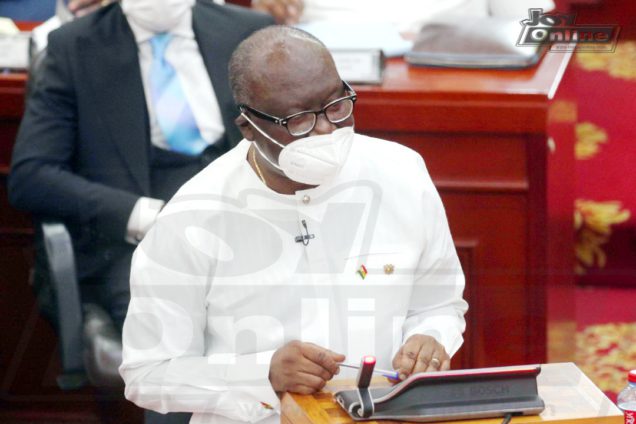Some finance professionals and digital payment experts have described the Electronic Transaction Levy that imposes 1.75% tax on all electronic transactions to be a setback to the government’s financial inclusion agenda.
The levy will affect all mobile money transactions and every electronic banking transactions including remittances.
But they claim this levy will push some people to return to the non-banking system for transactions.
Digital Payment Expert, Ebenezer Yalley told Joy Business the E-Levy which will affect all electronic banking transactions, amongst others will slow down government’s digital economic agenda.
“Now, this new tax would come in a way such that consumers will have to bear the cost. And you would realise that for all these services in respect of mobile money payments, for such services on peer to peer transfers as well as merchant payments, bank transfers riding on Ghana Interbank Payment and Settlement System instant pay platforms as well as merchant payments, the fee will be borne by the sender; while for inward remittances the cost will be borne by the recipient”.
“No matter how you look at it, you would realise that this will actually create some kind of apathy in respect of how electronic transactions are performed and it would invariably affect the flow of electronic transactions, looking at the fact that consumers are actually price sensitive when it comes to fees that are placed on these platforms”, he added.
Mr. Yalley continued saying “it is a major worry and I am of the view that something should be done about this particular situation”.
Head of Finance at Valley View University, Dr. Williams Peprah, however wants more clarity on the E-Levy, saying, “because government has stated that all electronic transactions are going to be taxed at 1.75%, for me the problem is at what basis is government going to tax the 1.75% as the E-Levy.”
He continued “especially when it comes to the bank transfers, because currently all transactions in the banking industry are done on electronic means which means that any movement of funds within the banking system will suffer a 1.75%, which to me is going to be a major problem which is going to affect the inclusion of getting people to bank.”
He stressed that the levy when implemented will affect the money in circulation.
“In Macroeconomics, there is something we call money supply in the system which is M3 and I noticed that government is going to apply the 1.75% on the M3 that is money in circulation. This is going to be a major problem though government is going to get a lot of revenue from it [E-levy].
“But what it simply means is that any money you have, whenever you do a financial transaction, you will pay 1.75%. So by the time we finish with E-Levy, Ghanaians should be poorer.
Latest Stories
-
GHS signs MoU to transform career progression for Ghana Health Service Specialists
36 minutes -
Constitution Review Committee begins national consultations to reform 1992 Constitution
52 minutes -
When journalism works, but the law lags: Ghana’s asset declaration challenge
1 hour -
Kumasi Prisons begins manufacturing of FDA-approved sachet and bottled water
1 hour -
Gov’t to roll out nationwide streetlight project to boost night security – Mahama
1 hour -
Health Ministry releases list of functional facilities, urges public to seek care amid nurses’ strike
2 hours -
Strengthening public procurement – a call for early procurement initiation to curb sole sourcing abuse
2 hours -
Republic Bank (Ghana) PLC rolls out irresistible cedi mortgage campaign
2 hours -
Government scholarships are not for sale – Registrar
3 hours -
Mahama bans DSTV, satellite TV subscriptions at Jubilee House
3 hours -
2 suspects arrested in Elmina for smuggling 250 bags of cocoa beans
3 hours -
Shrinking to increase: The economic and structural risks with decreasing building material sizes
3 hours -
GRNMA strike: We won’t treat gov’t with kid gloves – Health Committee Ranking Member
3 hours -
Goosie Tanoh highlights Ghana’s strategic role in Africa’s textile future at industry dialogue
4 hours -
I was depressed at a point in my life – Kwabena Kwabena
4 hours

